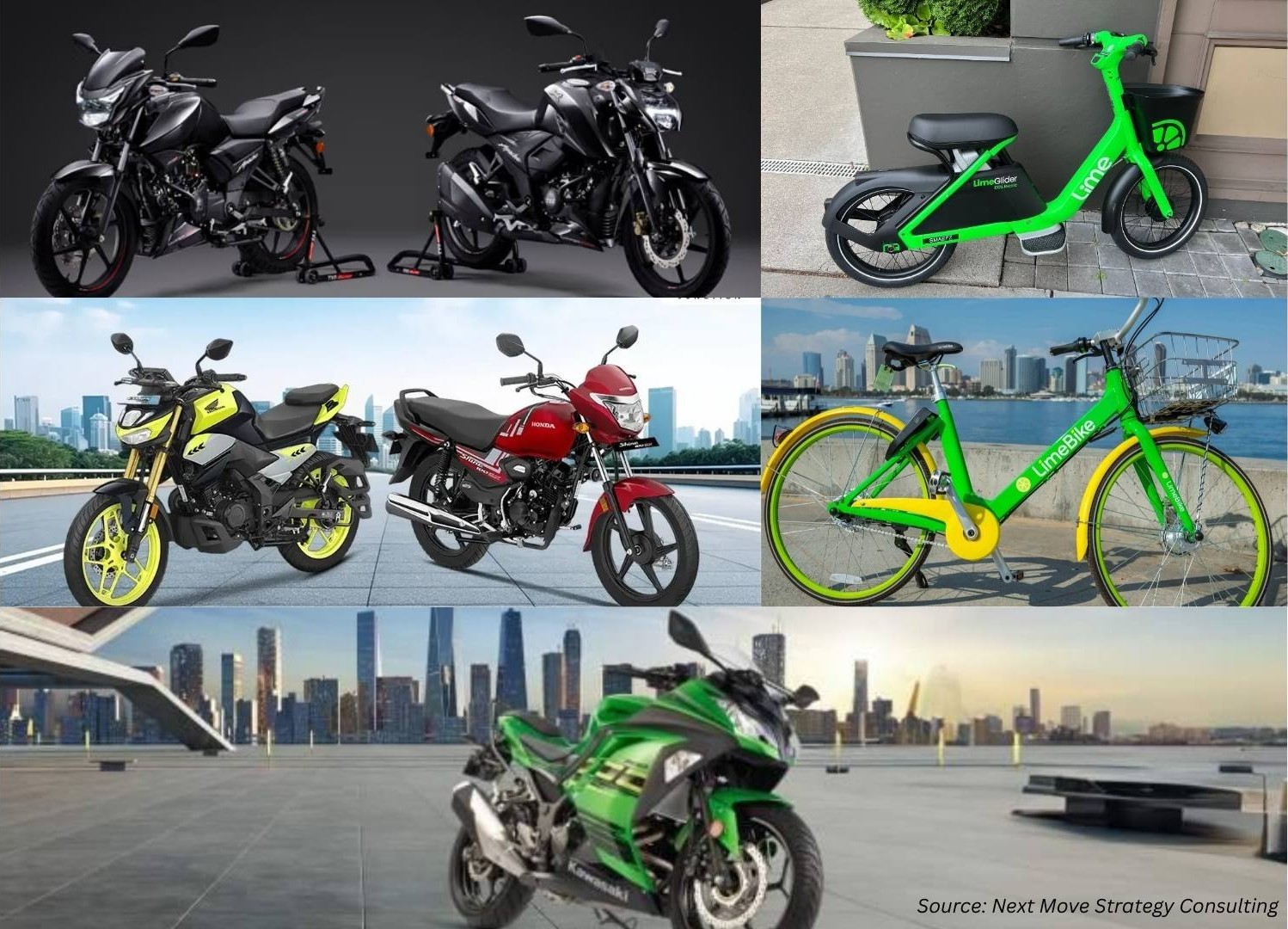
Fire truck Market by Vehicle Type (Pumpers, Tankers, Aerial Platforms, Rescue Vehicles, Brush Trucks, Hazmat Trucks, ARFF, Multi-tasking Modular Trucks, Wildland Fire truck s, and Others), by Engine Type (Internal Combustion Engine, EV Fire trucks, Hybrid), by Capacity (<500 gallons, 501-1,000 gallons, 1,001-2,000 gallons, >2,000 gallons), by End-User Application (Residential & Commercial, Industrial & Manufacturing, and Others) – Global Opportunity Analysis and Industry Forecast, 2025–2030
Industry Overview
The global Fire Truck Market size was valued at USD 8.90 billion in 2024 and is predicted to reach USD 9.63 billion by the end of 2025. The industry is predicted to reach USD 14.29 billion by 2030 with a CAGR of 8.2% from 2025 to 2030.
The market is witnessing strong growth due to rapid urbanization, infrastructure expansion, and the enforcement of stricter fire safety regulations. As cities grow and industrial activities increase, the need for advanced firefighting equipment becomes critical to ensure quick and effective emergency response.
Public and private sectors are actively upgrading fire truck fleets to comply with modern safety standards and manage the rising number of fire-related incidents. Despite high procurement and maintenance costs, which limit adoption in some regions, the market continues to expand.
The development of electric and hybrid fire trucks offers promising future potential, combining enhanced performance with environmental benefits and signalling a shift toward more sustainable firefighting solutions.
Rising Urbanization and Infrastructure Development Boost the Market Growth
As cities expand and industrial zones grow, the demand for fire safety services surges, prompting governments and municipalities to invest heavily in modern fire truck fleets to ensure rapid response in dense urban areas and emerging infrastructure developments.
According to United Nations data, more than 55% of the world’s population now lives in urban areas, figure projected to rise to 68% by 2050, adding an estimated 2.5 billion urban dwellers, largely across Asia and Africa. This rapid urban shift is creating sustained demand for technologically advanced and strategically deployed fire trucks.
Stringent Fire Safety Regulations Boost the Market Growth
Governments worldwide are implementing increasingly rigorous fire safety codes for commercial buildings, factories, airports, and public facilities prompting both public and private sector bodies to equip local fire departments with advanced fire trucks. These regulations not only mandate compliance with upgraded safety standards but also encourage the modernization of firefighting fleets to ensure effective emergency response in high-risk zones. As regulatory scrutiny intensifies, the demand for reliable and well-equipped fire trucks continues to grow across regions.
Increased Incidences of Fire Accidents Drives Market Expansion
The growing frequency of fire-related incidents driven by climate change, rapid industrialization, and rising electrical hazards has significantly amplified the need for specialized firefighting vehicles. Equipment such as aerial platforms, foam trucks, and rescue tenders is now critical for effective emergency response across both urban and rural areas. This upward trend in fire emergencies is compelling authorities and industries to strengthen their fire safety infrastructure, leading to increased demand for modern and high-capacity fire trucks.
High Procurement and Maintenance Costs Restrain the Market Growth
One of the major challenges in the fire truck market growth is the high upfront cost of procurement and ongoing maintenance. Advanced fire trucks equipped with modern technologies, such as thermal imaging, aerial ladders, and foam suppression systems, come with significant price tags ranging from hundreds of thousands to millions of dollars per unit.
Additionally, routine inspections, part replacements, and specialized training for operators add to the operational expenses. This financial burden particularly limiting for smaller municipalities and developing nations, restricting widespread adoption and fleet upgrades.
Introduction of Electric and Hybrid Fire Trucks Creates Future Opportunity
The global push toward sustainability is creating a prime opportunity for electric and hybrid fire trucks to gain traction. A standout example is the Pierce Volterra electric pumper, an innovative platform that delivers zero-emissions operation during both driving and pumping, while also seamlessly switching to a built-in internal combustion engine for extended missions.
Already deployed by several North American fire departments, including those in Madison (WI), Denton (TX), and Cary (NC), the Volterra has demonstrated real-world reliability and operational versatility. Beyond emissions reduction, the electric drivetrain also enhances communication on the scene due to quieter operation. Its successful deployment marks a pivotal moment for fire apparatus electrification, offering both performance and environmental benefits, and setting a strong precedent for the future of fire services.
Market Segmentations and Scope of the Study
The fire truck market report is segmented by vehicle type, engine type, capacity, end-user application, and regions. Engine types comprise internal combustion, electric, and hybrid models. Fire trucks are available in various water tank capacities, ranging from less than 500 gallons to over 2,000 gallons. End users span residential and commercial departments, industrial and manufacturing sites, military and defence, airports, forest services, and other sectors. Geographically, the market is analysed across North America, Europe, Asia-Pacific, and the Rest of the World, reflecting widespread and growing demand across industries.
Geographical Analysis
One key driver for the market in North America is the modernization of aging firefighting fleets. Many municipal and county fire departments across the U.S. and Canada are replacing outdated vehicles with technologically advanced fire trucks to meet current safety regulations, improve emergency response times, and enhance operational efficiency. This push is further supported by federal and state-level funding programs aimed at strengthening public safety infrastructure.
In Europe, the fire truck market share is primarily driven by the implementation of stringent fire safety regulations and updated building codes. Governments across the region are requiring commercial, residential, and industrial sectors to comply with stricter safety norms, prompting fire departments to invest in advanced and compliant fire trucks. Moreover, the European Union’s strong push toward sustainability is accelerating the adoption of electric and hybrid fire trucks, further propelling market growth.
Rapid urban expansion and infrastructure development are fueling demand for fire trucks across Asia-Pacific. Emerging economies like China, India, and several Southeast Asian countries are experiencing significant growth in urban populations and industrial areas, which increases the need for modern firefighting solutions. Additionally, rising government investment in disaster preparedness and emergency response systems is supporting the expansion and technological upgrading of firefighting fleets in the region.
Rising instances of wildfires and natural disasters are significantly impacting the fire truck market demand in the Rest of the World. Countries in South America, the Middle East, and parts of Africa are increasingly investing in specialized fire trucks capable of navigating rugged terrains and withstanding harsh environmental conditions. Both government bodies and humanitarian organizations are prioritizing improvements in disaster response infrastructure, which is contributing to the growing need for versatile, high-capacity fire trucks.
Strategic Developments in the Fire Truck Industry
Key players in the industry are actively engaging in strategic restructuring, global market competition, and facing increasing regulatory scrutiny.
-
In August 2025, in India, city officials travelled to Finland to inspect a 72-meter hydraulic platform ladder, far exceeding their current 42m capability, as part of a broader push to expand fire defence capacity by adding more stations and personnel. The tender decision selected a product over Magirus-Schela offerings.
-
In May 2025, The International Association of Fire Fighters (IAFF) is calling for a U.S. antitrust investigation into the fire truck manufacturing industry. They warn that consolidation, mainly among REV Group, Oshkosh, and Rosenbauer, has driven prices up to USD 2 million per ladder truck and delayed deliveries by up to four years, posing risks to public safety.
-
In January 2025, Magirus, known for its fire-fighting vehicles and formerly part of IVECO, was sold to private equity firm Mutares in a deal valued at USD 125 million.
Key Benefits
-
The report provides quantitative analysis and estimations of the market from 2025 to 2030, which assists in identifying the prevailing industry opportunities.
-
The study comprises a deep-dive analysis of the current and future fire truck market trends to depict prevalent investment pockets in the sector.
-
Information related to key drivers, restraints, and opportunities and their impact on the market is provided in the report.
-
Competitive analysis of the key players, along with their market share is provided in the report.
-
SWOT analysis and Porters Five Forces model is elaborated in the study.
-
Value chain analysis in the market study provides a clear picture of roles of stakeholders.
Fire Truck Market Key Segments
By Vehicle Type
-
Pumpers
-
Tankers
-
Aerial Platforms
-
Rescue Vehicles
-
Brush Trucks
-
Hazmat Trucks
-
ARFF
-
Multi-tasking Modular Trucks
-
Wildland Fire truck
-
Others
By Engine Type
-
Internal Combustion Engine
-
Diesel
-
Gasoline
-
-
EV Fire truck
-
Fuel Cell Electric
-
Pure Electric
-
-
Hybrid
-
Mild Hybrid
-
Plug-In Hybrid
-
By Capacity
-
< 500 gallons
-
501–1,000 gallons
-
1,001–2,000 gallons
-
> 2,000 gallons
By End User Application
-
Residential & Commercial
-
City Departments
-
Rural Departments
-
-
Industrial & Manufacturing
-
Mining
-
Oil & Gas
-
-
Military & Defense
-
Airports
-
Hanger Safety
-
Runway Rescue
-
-
Forest
-
Others
By Region
-
North America
-
The U.S.
-
Canada
-
Mexico
-
-
Europe
-
The UK
-
Germany
-
France
-
Italy
-
Spain
-
Denmark
-
Netherlands
-
Finland
-
Sweden
-
Norway
-
Russia
-
Rest of Europe
-
-
Asia-Pacific
-
China
-
Japan
-
India
-
South Korea
-
Australia
-
Indonesia
-
Singapore
-
Taiwan
-
Thailand
-
Rest of Asia-Pacific
-
-
RoW
-
Latin America
-
Middle East
-
Africa
-
Key Players
-
Rosenbauer International AG
-
Oshkosh Corporation (Pierce Manufacturing, Inc.)
-
MORITA HOLDINGS CORPORATION
-
HME Ahrens-Fox
-
Sichuan Chuanxiao Fire truck Manufacturing Co., Ltd.
-
GIMAEX Fire truck s
-
Magirus
-
Spartan Corp.
-
ANGLOCO LIMITED
-
Acres Emergency Vehicles
-
Fouts Fire Apparatus, LLC
-
Ferrara Fire Apparatus LLC
-
Beiben Truck Group Co., Ltd.
Report Scope and Segmentation
|
Parameters |
Details |
|
Market Size in 2025 |
USD 9.63 Billion |
|
Revenue Forecast in 2030 |
USD 14.29 Billion |
|
Growth Rate |
CAGR of 8.2% from 2025 to 2030 |
|
Analysis Period |
2024–2030 |
|
Base Year Considered |
2024 |
|
Forecast Period |
2025–2030 |
|
Market Size Estimation |
Billion (USD) |
|
Growth Factors |
|
|
Countries Covered |
28 |
|
Companies Profiled |
15 |
|
Market Share |
Available for 10 companies |
|
Customization Scope |
Free customization (equivalent up to 80 working hours of analysts) after purchase. Addition or alteration to country, regional, and segment scope. |
|
Pricing and Purchase Options |
Avail customized purchase options to meet your exact research needs. |

















 Speak to Our Analyst
Speak to Our Analyst

























